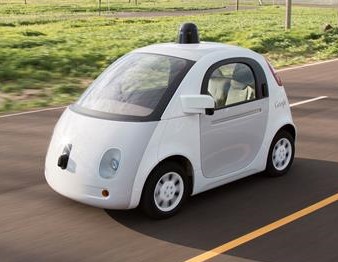 Half of motorists oppose driverless cars as Britain takes pole position in the development of self-driving vehicles, according to a new survey
Half of motorists oppose driverless cars as Britain takes pole position in the development of self-driving vehicles, according to a new survey
* 62% of drivers said they would feel less safe on the roads alongside other vehicles with no human behind the wheel
Half of motorists oppose driverless cars as Britain takes pole position in the development of self-driving vehicles, according to a new survey.
And 62% of drivers said they would feel less safe on the roads alongside other vehicles with no human behind the wheel.
Almost three-quarters of those surveyed (72%) said there would be added complications to resolving insurance disputes involving ‘robo cars.’
The new findings – from a new survey of 1,000 motorists by vehicle CCTV specialists SmartWitness – were revealed as the Government made the development of ‘autonomous vehicles’ a key part of the Queen’s Speech.
The Queen said measures in the Modern Transport Bill would ‘ensure the UK is at the forefront of technology for new forms of transport, including autonomous and electric vehicles.’
Motorists could be buying and driving robo cars as early as 2020 with the first trials on Britain’s roads due to start next year – starting on local roads and gradually extending to the motorway network.
There is still great uncertainty over the new technology with motorists calling for strong safeguards to ensure there is a ‘level playing field’ with insurance claims involving autonomous cars.
Nine out of ten (91%) support the compulsory introduction of camera technology in all autonomous vehicles so there would be court admissible proof of exactly what had happened in the event of an accident.
The SmartWitness poll found that 52% of motorists oppose the introduction of driverless cars – mainly over fears about road safety.
SmartWitness chief executive Paul Singh said: “It is incredibly exciting that Britain is taking the lead globally in the development of autonomous cars.
“But these new findings from the SmartWitness survey show that there are still real fears from ordinary motorists about what will happen if they are in a collision with an autonomous car.
“Around 40% of all motor insurance claims are disputed, but how do you resolve a dispute when you can only hear evidence from one of the drivers involved?
“The simplest way to eliminate the problem is to make camera technology compulsory in all autonomous vehicles. This will provide court admissible proof in the event of an accident and help to alleviate motorists’ fears about the introduction of driverless cars.
“It is fantastic that the Government is embracing this new technology and powering forward, but proper safeguards need to be put in place to protect all motorists.”
Just 2% of accidents recorded on SmartWitness cameras result in disputed claims.
Dashboard cameras are now used in more than half of Britain’s fleets, according to the Road Haulage Association.
Increasing numbers of private motorists are also using them to guard against ‘cash for crash’ fraudsters and reduce insurance premiums.
Transport Secretary Patrick McLoughlin said that driverless cars ‘might seem like something of science fiction, but the economic potential of the new technology is huge and I am determined the UK gets maximum benefit.’
Nissan has said that from 2017 it will build its Qashqai SUVs equipped with self-driving technology at its giant Sunderland factory.
